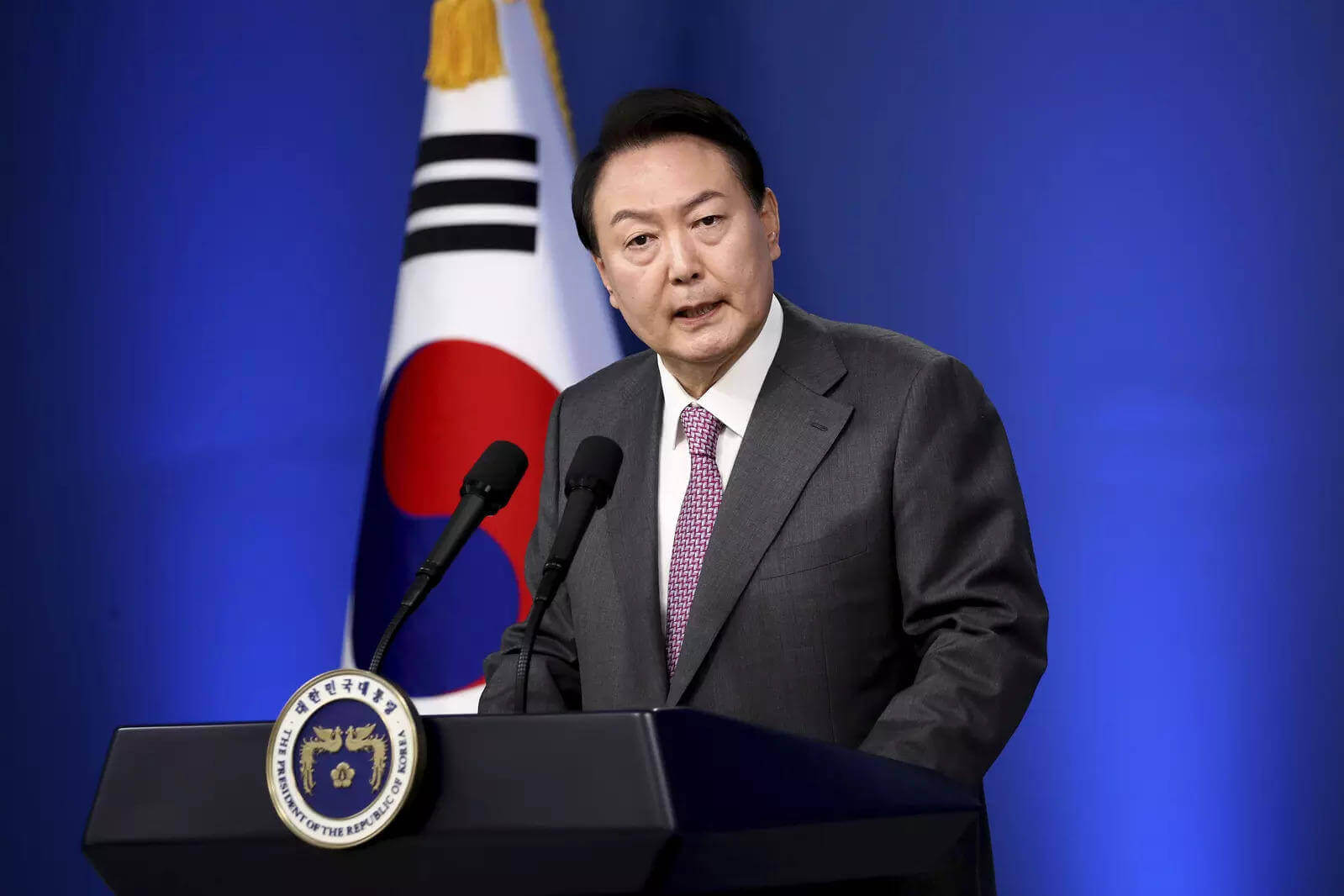South Korea announced its unilateral sanctions on North Korea for the first time in almost five years after the rogue regime on Friday fired yet another ballistic missile, in addition to 170 rounds of artillery shells, and flew warplanes near the border with South Korea.
South Korea’s Joint Chiefs of Staff (JCS) detected a short-range ballistic missile (SRBM) launch from the Sunan area in Pyongyang at 1:49 am. The missile flew around 700 kilometres, reaching a height of 50 km and a top speed of Mach 6.
It also detected the firing of roughly 130 artillery shots into the Yellow Sea from Majang-dong in North Korea’s Hwanghae Province for five minutes at1:20 am. Another 40 artillery shots were into the East Sea from Gueup-ri in the Gangwon Province between 2:57 am and 3:07 am.
It reported that the shots landed in eastern and western buffer zones north of the Northern Limit Line, which is the de facto inter-Korean maritime border, agreed upon as part of the two countries’ 2018 Comprehensive Military Agreement (CMA).
BREAKING: South Korea sent a notice to North Korea through a military hotline that the DPRK’s artillery drills overnight were “a breach” of the 2018 inter-Korean military agreement, according to Seoul’s defense ministry.
— NK NEWS (@nknewsorg) October 14, 2022
North Korea also flew almost 10 warplanes near South Korea’s border late Thursday and early Friday, prompting Seoul’s air force to scramble its F-35A stealth fighters and other assets. However, no clashes were reported between the two countries.
The JCS criticised the tests for being a “clear” violation of the CMA as well as United Nations Security Council resolutions. “Our military gravely warns North Korea regarding the fact that it has violated the September 19 military agreement and escalated military tensions on the Korean Peninsula through continued provocations, and strongly urges it to immediately cease them,” it said. It added that the South’s defence forces “will keep maintaining a firm readiness posture based on capabilities to respond overwhelmingly to any North Korean provocations.”
South Korean President Yoon Suk-yeol criticised North Korea’s latest series of provocations, accusing them of becoming “indiscriminative,” but echoed previous claims that Seoul has significant retaliatory capabilities to deter an actual assault by Pyongyang to some extent.
BREAKING: North Korea launched a missile towards the East Sea, South Korea’s Joint Chief of Staff said per Yonhap:
— NK NEWS (@nknewsorg) October 13, 2022
-Fired in early hours of Friday (alert after 2AM)
-Second late night missile test in less than a week
-Follows late night DPRK jet exercise
More soon @nknewsorg
“The decision to attack can’t be made without a willingness to risk a brutal outcome,” Yoon told reporters. “The massive punishment and retaliation strategy, which is the final step of our three-axis strategy, would be a considerable psychological and social deterrence (for the North),” he warned, “We’re building a readiness posture against North Korea’s provocations without leaving any gaps and by doing our best,” the South Korean leader declared.
South Korea also invoked a series of new unilateral sanctions against its neighbour for the first time in five years. The blacklist includes 15 North Korean individuals at shipping firms and 16 institutions involved in the procurement of supplies for weapons of mass destruction. Seoul’s last sanctions on the country came in 2017, in response to Pyongyang’s sixth nuclear test.
The U.S. strongly condemns the DPRK’s dangerous and reckless decision to launch a long-range ballistic missile over Japan. This action is destabilizing and shows the DPRK’s blatant disregard for @UN Security Council resolutions and international safety norms. https://t.co/tC8l0z256U
— U.S. Asia Pacific Media Hub (@eAsiaMediaHub) October 4, 2022
“We strongly condemn North Korea for staging a series of missile provocations with unprecedented frequency recently and suggesting the use of tactical nukes against us,” the foreign ministry said. A ministry official also told the media on condition of anonymity that the government plans on imposing “additional unilateral sanctions against North Korea’s provocations and to discuss ways to improve the effectiveness of sanctions in close coordination with the United States, Japan, Australia, the European Union, and other friendly countries.”
This marked North Korea’s 15th missile launch since it resumed its testing activities in late September. In recent weeks, the North has conducted a record-breaking flurry of tests, including an intermediate-range ballistic missile (IRBM) over Japan last week.

